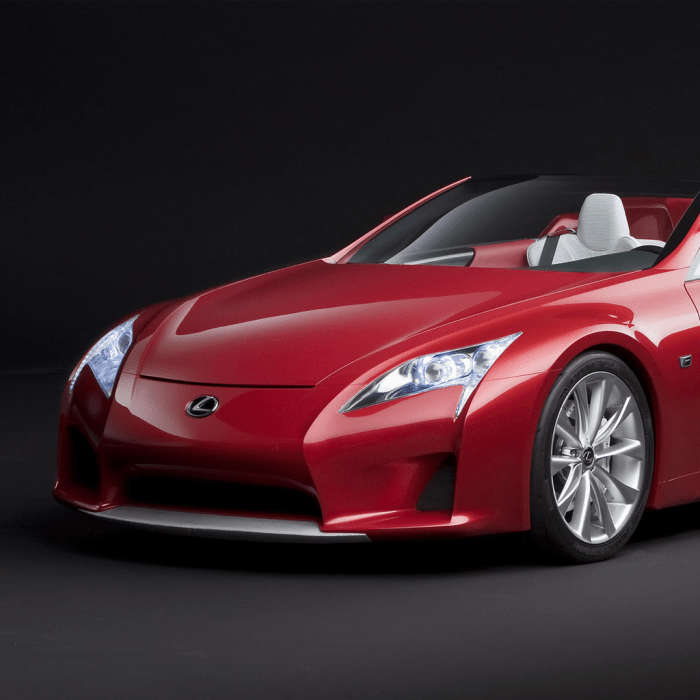Lexus vs BMW reliability is a topic that captivates automotive enthusiasts and potential buyers alike. As two prominent luxury car brands, their approaches to reliability and customer satisfaction are often scrutinized. Understanding the differences in reliability ratings, maintenance costs, and owner experiences can significantly impact purchasing decisions for consumers looking for a dependable vehicle.
With a rich history and distinct brand philosophies, Lexus emphasizes a reputation for quality and customer service, while BMW leans towards performance and driving pleasure. Analyzing reliability ratings from various sources reveals intriguing patterns and trends, helping consumers navigate the often complex automotive landscape.
Overview of Lexus and BMW

Lexus and BMW are two automotive powerhouses known for their distinctive approaches to luxury vehicles. Each brand boasts a rich history and a unique philosophy that informs their design and engineering principles. Lexus, the luxury division of Toyota, was launched in 1989 with a focus on offering vehicles that combine comfort, reliability, and advanced technology. In contrast, BMW, founded in 1916, has built its reputation on a commitment to performance and driving pleasure, encapsulated in its slogan, “The Ultimate Driving Machine.”
Lexus has consistently prioritized reliability and customer satisfaction, setting itself apart in the luxury market. Its vehicles often feature high-end materials and meticulous craftsmanship, appealing to consumers looking for a dependable and comfortable ride. Conversely, BMW targets driving enthusiasts, emphasizing performance and sporty handling in its lineup. This fundamental difference in brand philosophy shapes their market positions, with Lexus appealing more to those seeking a luxurious yet reliable experience, while BMW attracts customers desiring a thrilling driving experience.
Reliability Ratings
Reliability ratings play a significant role in consumer decision-making when choosing between Lexus and BMW. According to various sources like J.D. Power and Consumer Reports, Lexus consistently ranks among the top brands for reliability. In contrast, BMW often fares lower in these assessments. The automotive industry employs several criteria for reliability assessment, such as the frequency of repairs, the severity of issues, and owner satisfaction ratings.
Over the years, Lexus has maintained a reputation for building vehicles that endure the test of time, with many models demonstrating high reliability scores year after year. BMW, while known for its engineering excellence, has faced challenges with some models experiencing higher-than-average repair rates, leading to fluctuations in its reliability ratings.
Common Issues and Problems, Lexus vs BMW reliability
Lexus vehicles are generally praised for their reliability, but some common issues have been reported. These may include minor electrical problems and occasional transmission issues, particularly in older models. Nevertheless, such issues are typically infrequent and manageable.
On the other hand, BMW models tend to exhibit a range of more complex problems, such as oil leaks, electrical system failures, and issues with the cooling system. Statistical data indicates that BMW owners may encounter a higher average number of repairs compared to their Lexus counterparts, emphasizing the importance of considering long-term maintenance when choosing between the two brands.
Maintenance Costs

When comparing maintenance costs, Lexus generally offers a more economical ownership experience. Average maintenance costs for Lexus vehicles are often lower than those for BMW, thanks to their reputation for durability and fewer required repairs. Factors influencing maintenance expenses include parts availability, labor rates, and the overall complexity of the vehicle’s design.
Both brands offer varying warranty coverage, which can impact long-term reliability. Lexus provides a robust warranty program that encompasses several years and miles, giving consumers peace of mind. In contrast, BMW’s warranty may require more frequent service visits, contributing to higher long-term maintenance costs.
Customer Satisfaction and Reviews
Customer satisfaction ratings for Lexus and BMW reveal significant insights into owner experiences. Lexus consistently earns high marks for reliability and overall satisfaction from consumer reports. Owners appreciate the brand’s emphasis on comfort, build quality, and dependable performance.
Conversely, BMW owners often express mixed feelings. While many praise the driving dynamics and performance of their vehicles, there are frequent complaints regarding repair frequency and costs. Feedback regarding after-sales service also varies, with Lexus often receiving higher satisfaction ratings due to its customer-focused approach.
Long-term Ownership Experience
Long-term reliability experiences of Lexus owners are typically positive, with many reporting that their vehicles remain dependable even after several years of use. Resale value for Lexus cars tends to hold up well, reflecting their reputation for reliability and satisfaction.
In contrast, BMW owners may find their long-term experience varies more widely. While some enjoy the performance and luxury of their vehicles, others report challenges with maintenance and repairs that can affect resale value. Overall, Lexus vehicles often demonstrate lower depreciation rates compared to BMW, making them a more attractive option for buyers concerned about long-term investment.
Comparison of Specific Models

When evaluating specific models, Lexus’s top-rated vehicles, such as the RX and ES series, often score highly in reliability metrics. These models are known for their comfort, advanced safety features, and consistent performance.
BMW’s popular models, like the 3 Series and X5, are celebrated for their performance and driving dynamics, but may not match Lexus in reliability ratings. Model-specific features, such as advanced technology and performance enhancements, contribute to BMW’s appeal, yet they can also introduce complexity that affects overall reliability.
Concluding Remarks: Lexus Vs BMW Reliability
In summary, the discussion surrounding Lexus vs BMW reliability sheds light on the nuances that differentiate these two luxury brands. While Lexus consistently ranks highly in reliability and customer satisfaction, BMW attracts those seeking a more performance-driven experience. Ultimately, understanding these factors empowers consumers to make informed decisions based on their individual priorities and expectations in a luxury vehicle.